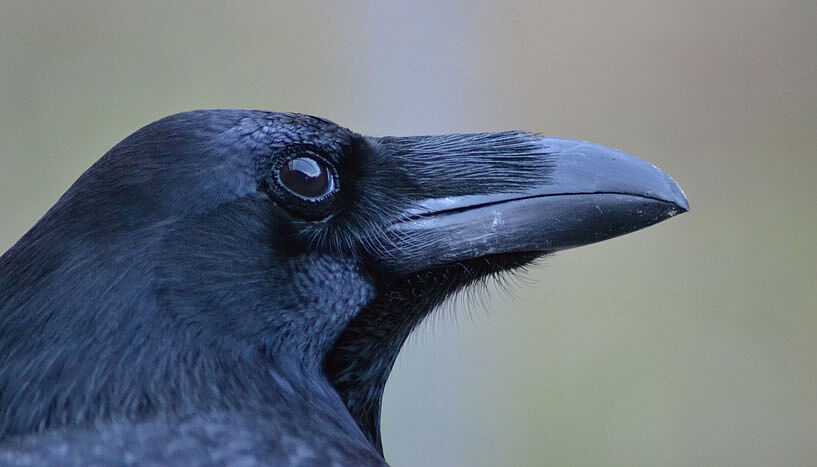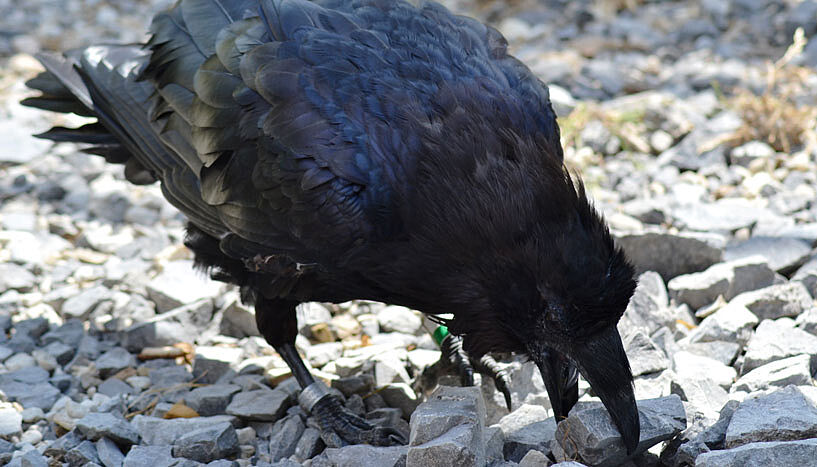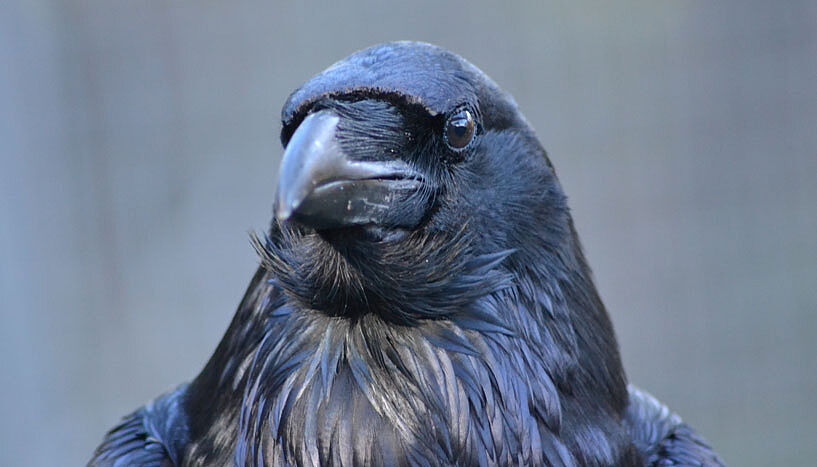Ravens attribute visual access to unseen competitiors
02. Februar 2016Are non-human animals capable of a basic Theory of Mind?
Ravens anticipate what other ravens can see, cognitive biologists Thomas Bugnyar and Stephan Reber of the University Vienna found out in collaboration with the philosopher Cameron Buckner (University of Houston, Texas). Bugnyar and his team show for the first time unequivocally that animals do not rely on behavioural cues to pass an attribution task. The findings support the assumption that, aside humans, some animals may develop a basic Theory of Mind. The results of this study have been published in the scientific journal "Nature Communications".
Recent studies purported to demonstrate such a basic ‘Theory of Mind’ in non-human animals like chimpanzees, monkeys, and corvids. However, these studies remain controversial because they share a common confound: the other’s head orientation or line of gaze, which could serve as an associative cue.
The current study is the first to rule out this confound: Thomas Bugnyar from the Department of Cognitive Biology at the University of Vienna and his colleagues tested ravens for their understanding of ‘seeing’ as mental state, using the birds’ predisposition to compete for hidden food. In a first step, the ravens showed cache protection behaviors when dominants were visible but not when they were just audible in the adjacent room. In the next step, the ravens were introduced to a small peephole, which allowed them to peek into the adjacent room. With the peephole being open, the ravens instantly guarded their caches against discovery when they now could hear dominants in that room. The presence of dominants was simulated via playback of sounds. Hence, there were no behavioral cues that ravens could orient on. Yet, they behaved as if someone could see them.
"The results indicate that ravens mentally integrate information about the others’ audible presence and their own visual experience of seeing through the peephole, which fits one of the recent hypotheses of how a Theory of Mind could work" says Bugnyar. "The study also shows how fruitful it can be to talk to scholars from other fields, as it got kick-started by discussions with philosophers", notably our co-author Cameron Buckner’ Bugnyar adds.
Publication in "Nature Communications"
Thomas Bugnyar, Stephan A. Reber & Cameron Buckner: "Ravens attribute visual access to unseen competitors". Published online February 2, 2016.
Doi: 10.1038/ncomm10506
Wissenschaftlicher Kontakt
Univ.-Prof. Mag. Dr. Thomas Bugnyar
Department für KognitionsbiologieUniversität Wien
1090 - Wien, Althanstraße 14 (UZA I)
+43-1-4277-761 12
thomas.bugnyar@univie.ac.at
Rückfragehinweis
Stephan Brodicky
Pressebüro der Universität WienUniversität Wien
1010 - Wien, Universitätsring 1
+43-1-4277-175 41
+43-664-60277-175 41
stephan.brodicky@univie.ac.at
Downloads:
Observer_c_Jana_Mueller_01.JPG
Dateigröße: 5,24 MB
Caching_c_Jana_Mueller_01.JPG
Dateigröße: 5,24 MB
Raven_with_food_c_Jana_Mueller_01.JPG
Dateigröße: 5,4 MB



